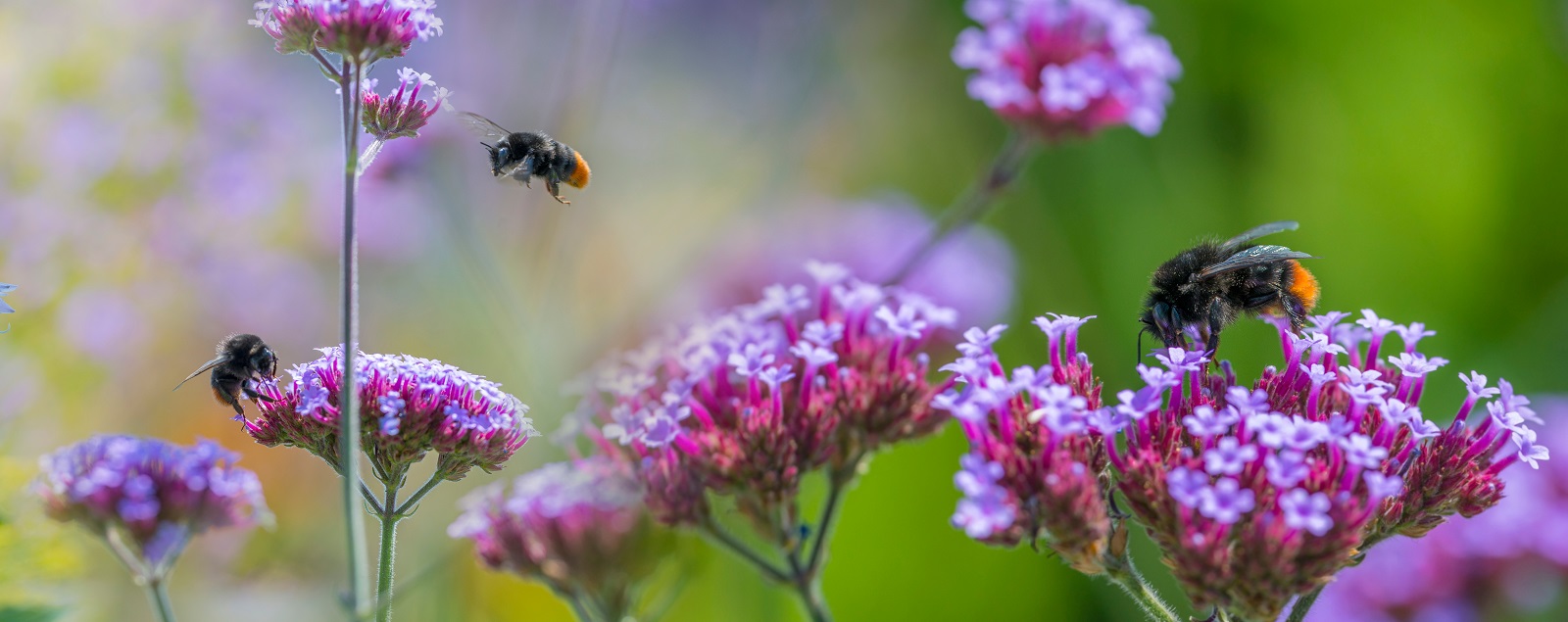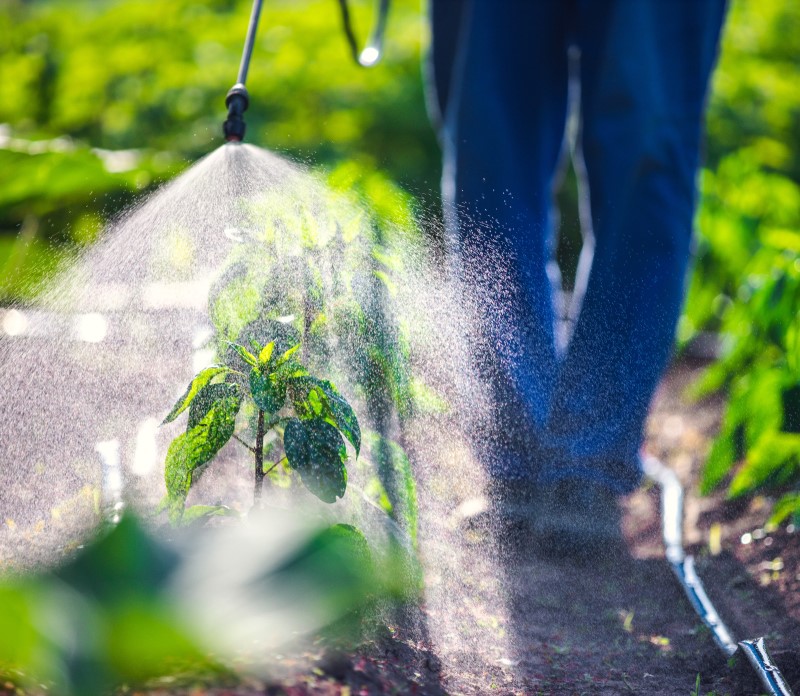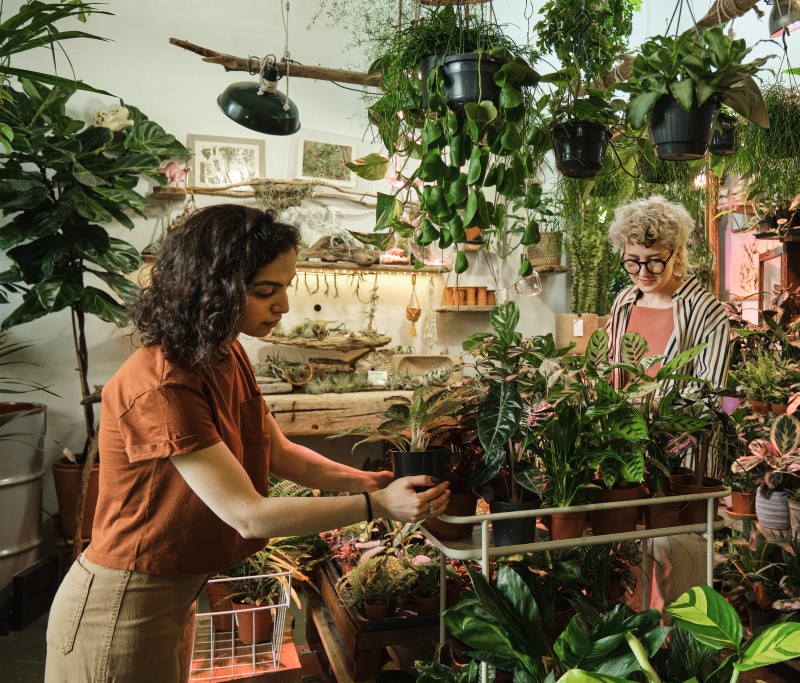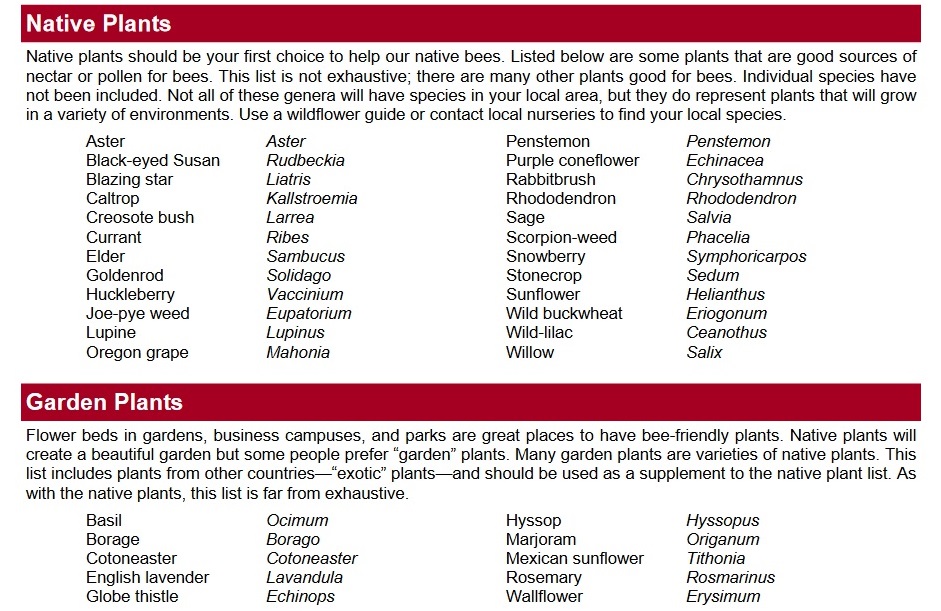Cultivating Bee-Friendly Gardens

Donate to support our work on this increasingly important project to protect our local pollinators.
Pollinators, in general, are a vital part of a healthy environment. Native bees are North America's most important group of pollnators. Patches of flowers can be grown almost anywhere and will form an important resource for bees.
Choosing the right flowers
To help bees and other pollinators, like butterflies, you should provide a range of plants that will offer a succession of flowers, and thus pollen and nectar, through the whole growing season. Patches of foraging habitat can be created in many different locations, from backyards and school grounds to golf courses and city parks. Even a small area planted with the right flowers will be beneficial, because each patch will add to the mosaic of habitat available to bees and other pollinators.
A few good choices for plants to grow in your garden that are especially attractive to bees
(Source: Xerces Society)
Read the full 2-page brochure from the Xerces Society, Plants for Native Bees in North America - Xerces Society (PDF)
From Beyond Pesticides:
Bee-Friendly Gardening Resources from Pesticide Research Institute
BEE Protective Managing Landscapes with Pollinators in Mind (Beyond Pesticides)
Organic Seeds Available in Oregon:
| Company | Location | Website |
|---|---|---|
| Wild Garden Seed | Philomath, OR | www.wildgardenseed.com |
| Siskiyou Seeds | Williams, OR | www.siskiyouseeds.com |
| Adaptive Seeds | Sweet Home, OR | www.adaptiveseeds.com |
| Deep Harvest Farm | Freeland, WA (serves Oregon) | www.deepharvestfarm.com |
| Savage Seed Co. | Southern Oregon | www.seedsavage.com |
| Chickadee Farm | Dayton, OR | www.chickadee.farm |
| Oregon Heirloom Seeds | Oregon | www.oregonheirloomseeds.com |
Bees and Neonics
One of the major culprits behind the catastrophic loss of bees and other insects is the use of neonicotinoid pesticides (pronounced: knee-oh-nick-a-tin-oy-d). These highly toxic, synthetic chemicals pose a significant threat to insects, even at low doses. What’s worse, they persist in the environment and continue to harm beneficial soil organisms and aquatic life for years after their application. Neonicotinoids find their way into the nectar, pollen, leaves and many other parts of plants, endangering pollinators and other animals that rely on these resources.
Avoid use of products with neonicotinoids!

Where are neonics found?
Sadly, neonicotinoids are widely used worldwide. They are sprayed directly onto crops, trees and seeds in agricultural and urban settings, and even used for termite and flea prevention in pets. Surprisingly, neonics are often found in higher concentrations in urban areas than in agricultural lands! This is likely because they are commonly used for treatments for turf grass, trees, shrubs and flowers and are widely available in stores and online.
Shoppers Beware!
The labels on pesticide products don’t adequately warn consumers about the uptake of neonicotinoids by other plants. Shoppers assume that products sold at garden and grocery stores are completely safe, but research suggests that home use of neonicotinoid-containing pesticides far exceeds what is considered “safe” for pollinators and soil health.
Neonicotinoids commonly found in widely-used yard products include:
Look for these names when you shop for garden maintenance products and AVOID them!
BESIDES AVOIDING NEONIC PRODUCTS, there's more you can do!
1. Grow bee-friendly flowers (BEE FRIENDLY FLOWERS & BLOOM CALENDAR) that bloom from spring to fall to provide food for pollinators. Avoid poisoning pollinators! Bedford you buy, ask your garden center or nursery if plants have been treated with neonics. If they don’t know if their plants are treated with neonics, take your business elsewhere. Support nurseries that provide neonic-free plants. You can also grow plants from untreated seed or cuttings. Share untreated plants, cuttings and bulbs with your friends and neighbors! Add more native plants to your garden to provide food for native bumblebees, solitary bees, butterflies, hummingbirds and other pollinators.
2. Create bee-friendly watering station ponds/containers during HOT summer months!
(see this HOW TO VIDEO on YouTube: How to Make a Bee Watering Station | Pollinator Water Fountain
3. Enhance ground nesting bee habitat. Solitary bees prefer to build nests underground. They look for loose, well-drained soils in sunny spots, often with some nearby plant debris they can use for nesting (raspberry canes, tomato stalks, etc).
4. Urge local food growers, nurseries and garden centers to stop selling plants treated with neonics and to support legislation to remove neonics from consumer store shelves.

Ask your garden center or nursery if plants have been treated with neonics.


